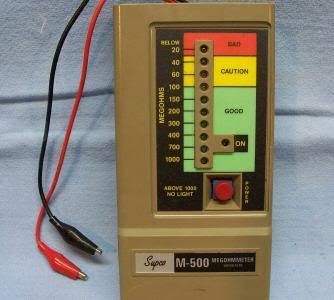dduffee260
Senior Member
- Location
- Texas
If you want to check a set of feeder wires before termination. Would a megger be the best instrument. I have often heard of this but honestly have never used a megger. Do you simply hook up to the wire and the megger gauge shows a fault like a normal resistance meter would? Also if we have to purchase a megger which one is the best for the money?



